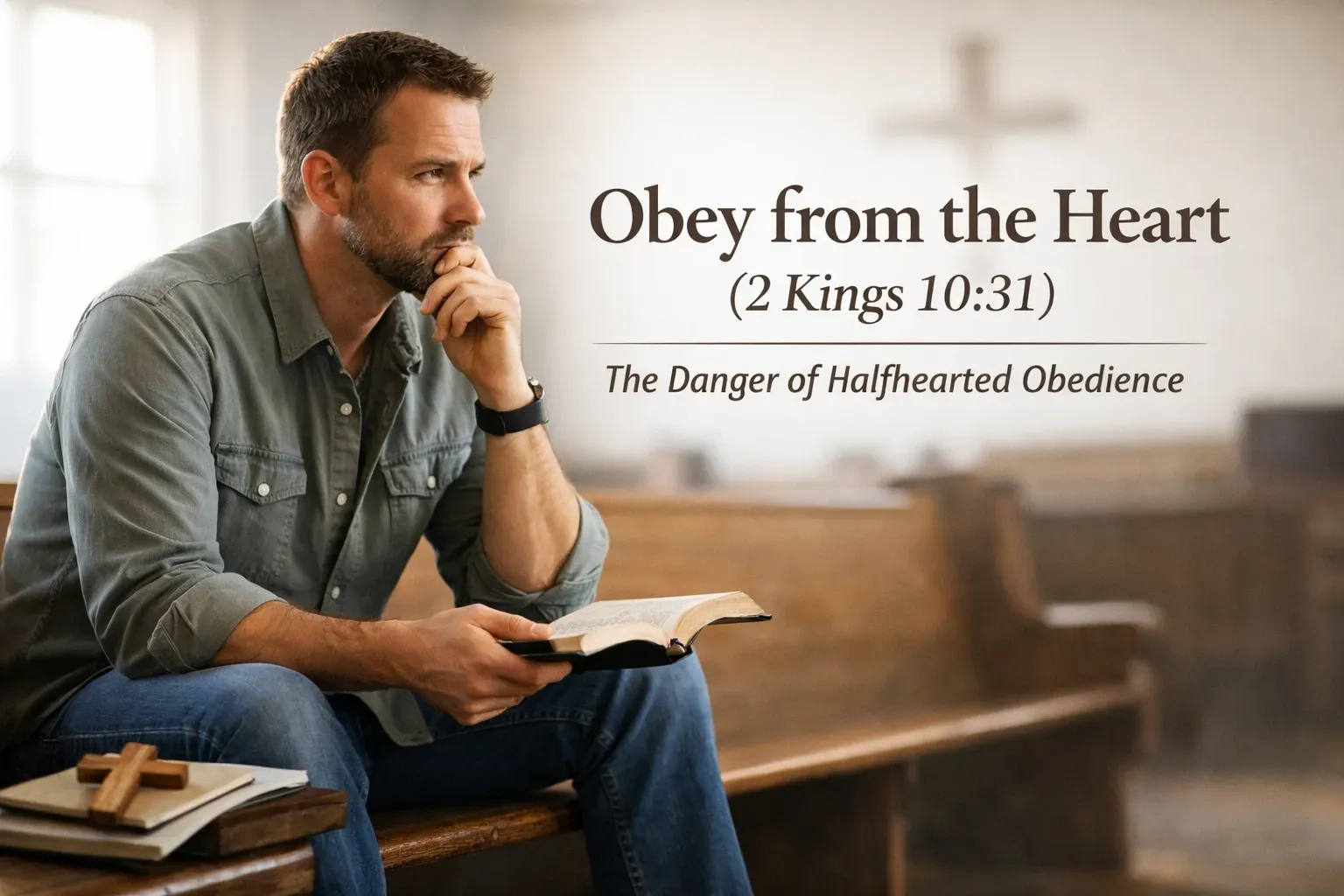How Does One Receive a Call to Christian Service
One is to run before the Lord; the other is to lag behind

Read this to learn of another opinion about God calling His people to His service. I believe the author has it right.
God is sovereign in His choice of the servants who will serve Him. This does not mean that we sit down with folded hands and wait for some miraculous event to catapult us into the service of Jesus Christ. There must be on our part an attitude of receptivity and readiness so that when the call comes we will be in a position to hear and answer. The chances of our getting a call will be greatly enhanced if we meet certain conditions. Among these are the following:
An attentive ear. An open mind is a great achievement, but it may still fall short unless it is accompanied by an attentive ear. It is not enough to rid ones mind of all “deceptive fantasies.” We must also have our ear open to the voice of the Holy Spirit.
We know all too well that the hearing faculty can be turned on or off almost at will. It doesn’t take much practice to sharpen one’s | sense of hearing provided there is sufficient motivation. In the dead of night the young mother can hear the cry of her firstborn son and is instantly on her feet to prepare the two o’clock feeding, while the father in the same room sleeps blissfully through the entire operation. What makes the difference? Do not both parents have the same hearing faculty? The maternal instinct in one parent sharpened her sense of hearing to the point where the slightest cry from the little one in the crib brought her out of bed. She slept, as we say, with “one ear open” while her husband slept with both ears closed.
The same thing can happen in the spiritual realm. With a little practice we can train ourselves to detect the slightest whisper of the Holy Spirit when He speaks to us. On the other hand we can turn a deaf ear to His entreaties. We need do this only two or three times and our hearing faculty will be so impaired that we will be beyond the reach of His voice.
Christians have been known to complain: “How is it that God speaks to others, but never to me?” It may be that God did speak, not once but many times, but they were not listening. Effective communication is possible only when the speaker and the listener are in direct contact. If only one is operating there can be no communication.
A pure heart. Understanding God’s truth, or ascertaining God’s will, is not a purely intellectual exercise. It has a moral dimension to it. God does not reveal Himself to every Tom, Dick, or Harry whose interest in His truth takes the form of intellectual curiosity. God reveals His truth not to those who want to know it but to those who are prepared to do it. The Jews of Jesus’ day had difficulty in deciding the true origin of His teaching, whether it was from God or from man. Jesus said to them, “If any man’s will is to do his [God’s] will, he shall know whether the teaching is from God or whether I am speaking on my own authority” (Jn 7:17).
In the Hall of Science at the Century of Progress World’s Fair in Chicago in 1933-34 there was a huge motto which read: “Nature reveals her secrets only to those who obey her laws.” Every scientist : knows the truth of those words. This truth,. however, is not con; fined to the physical realm of science. It is likewise true in the meta- I physical realm of theology. God reveals His truths only to those who obey His laws. One of His laws is that since He is holy (Ps 99:5) all who wish to have fellowship with Him must likewise be holy (He 12:14). King David asked: “Who shall ascend the hill of the Lord? And who shall stand in his holy place?” And the answer came back: “He who has clean hands and a pure heart, who does not lift up his soul to what is false, and does not swear deceitfully” (Ps 24:3-4). A pure heart is absolutely essential to communication between God and man—in either direction. The psalmist said: “If I had cherished iniquity in my heart, the Lord would not have listened” (Ps 66:18).
The person with unconfessed sin in his life will wait in vain for any call from the Lord, other than the call to repent (Is 55:7). For the Christian waiting for God’s call it is not enough to have an open mind and an attentive ear; he must also have a pure heart, for only the pure in heart will ever see God (Mt 5:8).
Busy hands. There is a common saying that Satan is sure to find some work for idle hands to do. Doubtless there is some truth in the statement. If Satan prefers idle hands, God certaintly does not. If the Scriptures are anything to go by, God’s call comes to those who are busy, not idle. Moses, David, Peter, Matthew, and Paul were all engaged in some demanding work when the call of God came. He wants workers, not loafers, in His vineyard. Jesus Himself was the great Worker. He said, “My Father is working still, and I am working” (Jn 5:17). Again He said, “We must work the works of him who sent me while it is day; night comes when no man can work” (Jn 9:4).
Any person contemplating even the possibility of a call should begin by getting involved in some kind of work for the Lord. How is God going to call a person into full-time service if that person has never engaged in any kind of Christian work? One could begin by teaching a Sunday school class, or engaging in open-air work, or home visitation, or tract distribution, or rescue mission work, or leading a youth group, or helping in a vacation Bible school, or doing any one of the many things that need to be done in the local church.
In this connection it is instructive to observe that the vast majority of missionary candidates come from the Bible colleges, not from the Christian liberal arts colleges or the secular universities. Why is this? Doubtless the most important reason is that the Bible colleges require all students to engage in practical Christian work during their four years in college. During that time they gain courage, experience, and expertise. As a result they acquire a taste for Christian service, which they might never have done under different circumstances.
It is tragically possible for a student to spend four years in a Christian liberal arts college and never accept a single Christian service assignment, or attend a single missionary prayer meeting, or read a single missionary biography or periodical, or talk personally with a visiting chapel speaker, or even give his testimony in a class meeting. It is fair to ask: How is the Holy Spirit to reach that student with a call to Christian service?
Ready feet. The psalmist said: “I will run in the way of thy commandments” (Ps 119:32). Isaiah said: “How beautiful on the mountains are the feet of him who brings good tidings, who publishes peace” (Is 52:7). The time is short (1 Co 7:29) and the king’s business requires haste (1 Sa 21:8). Indecision and procrastination have more than once played havoc with a call to Christian service.
Young people facing Christian service encounter two temptations. One is to run before the Lord; the other is to lag behind; for every one who succumbs to the first temptation there are ten who fall before the second. There are people who can’t bring themselves to make a major decision such as that required to enter full-time Christian service. They examine all aspects of the situation; they pray about the matter; they discuss it with others; they do everything but come to a conclusion.
One problem is that they don’t understand the true nature of divine guidance; consequently they are not prepared to step out in faith. They want to wait until their guidance is 100 percent certain; and that, of course, never happens. Guidance as granted by God is always perfect; but once it has filtered through the human mind it is no longer per- feet. If one waits until he is absolutely sure of the Lord’s leading, he will wait forever. Divine guidance is never 100 percent certain; if it 1 were, where would faith come in? We must remember that the Christian walks by faith and not by sight (2 Co 5:7); which means that he must be willing to act on the guidance God has given and expect Him to be responsible for all the consequences that flow from his obedience.
Even Paul, when giving instructions regarding Christian marriage, was obliged to say, “I think that I have the Spirit of God” (1 Co 7:40). And after he received the so-called Macedonian call, Luke says, “Immediately we sought to go into Macedonia, concluding that God had called us to preach the gospel to them” (Acts 16:10).
Somewhere along the line the individual must make up his mind to act, to get going. It is always easier to steer a moving vehicle than a stationary one. Some would-be missionaries give the impression that they are waiting for God to pack their trunks, buy their tickets, and see them off at the airport
J. Herbert Kane, Understanding Christian Missions











